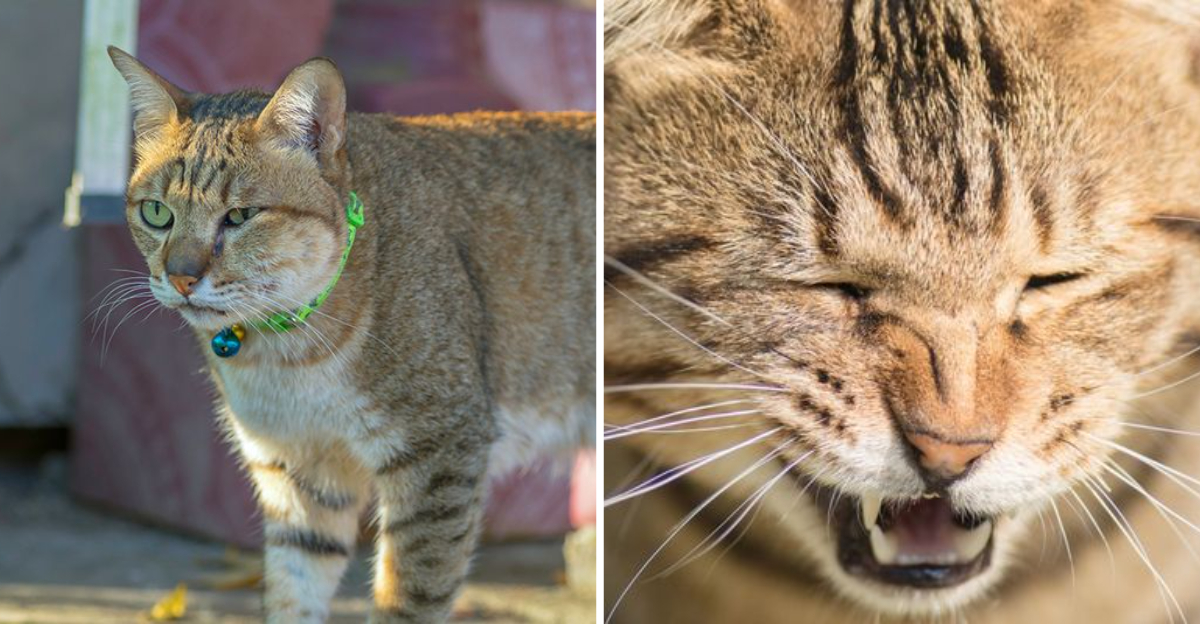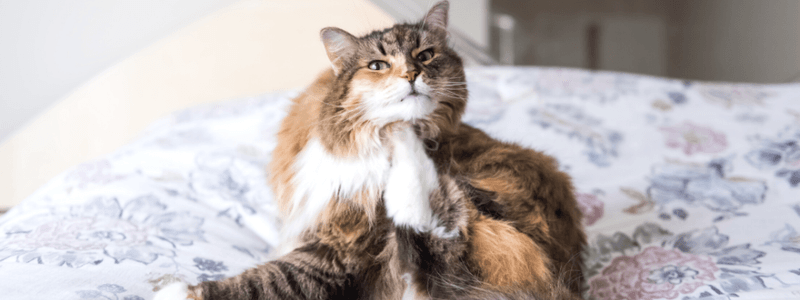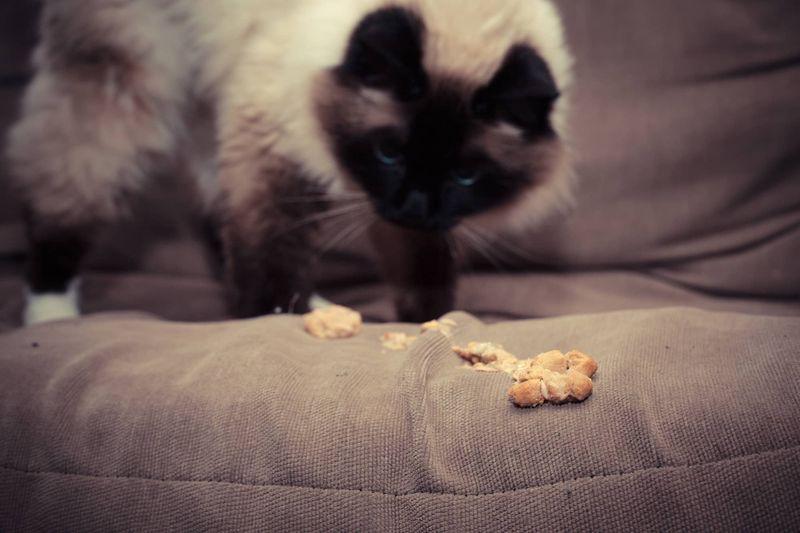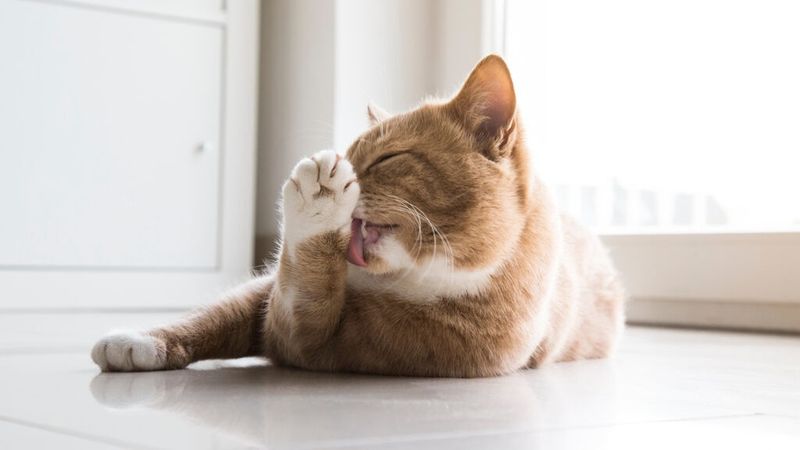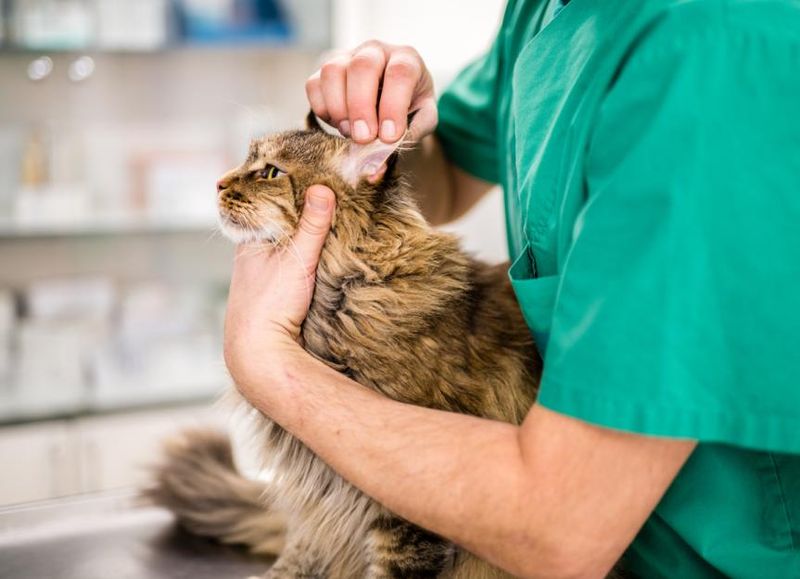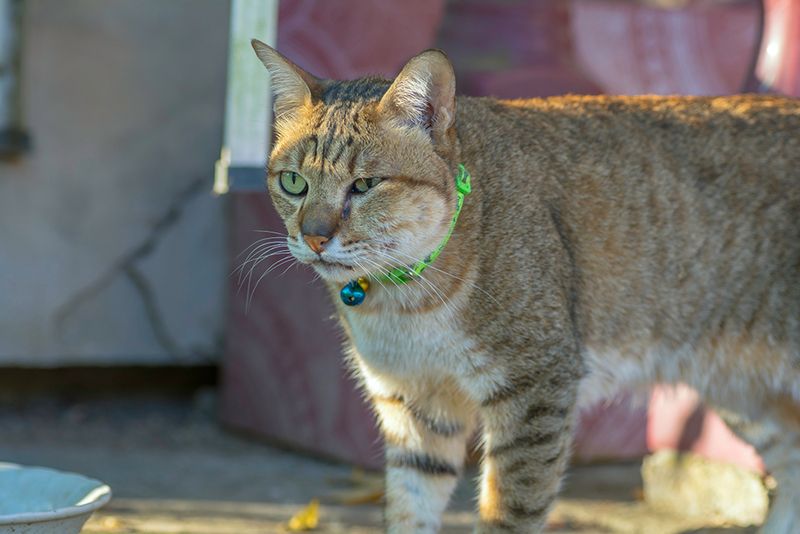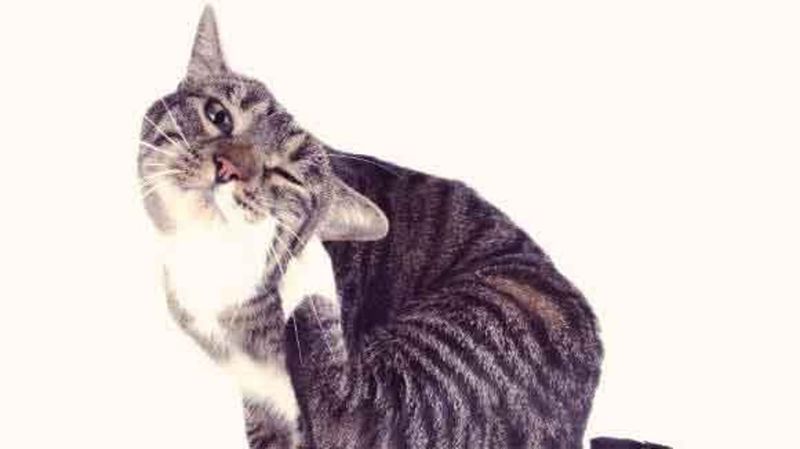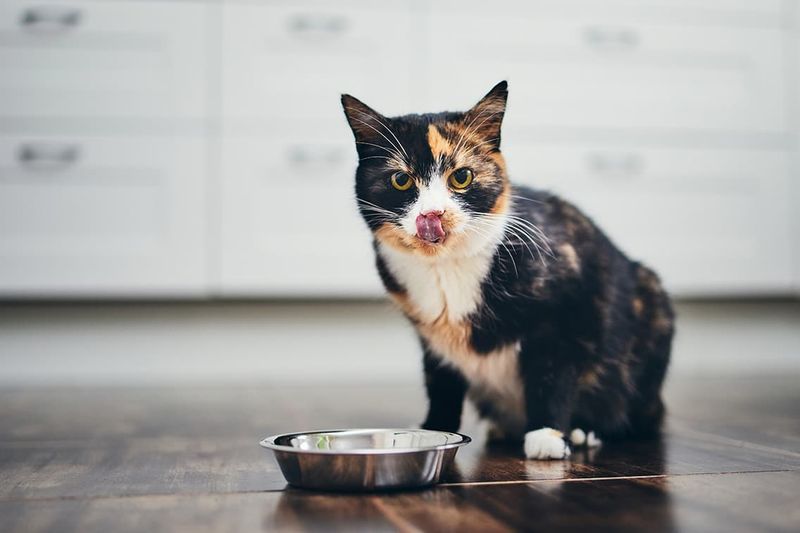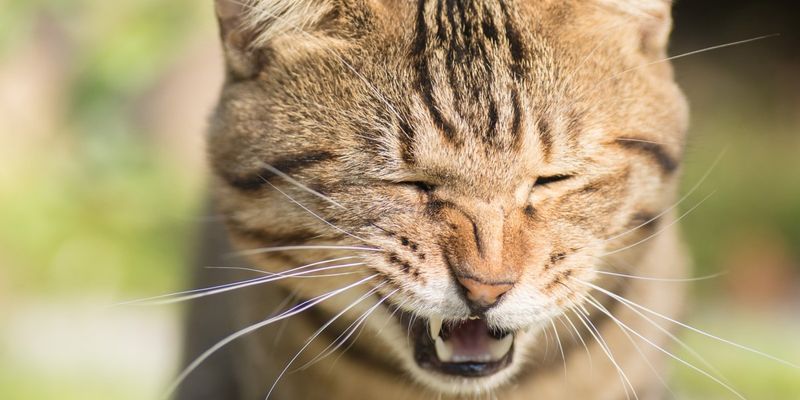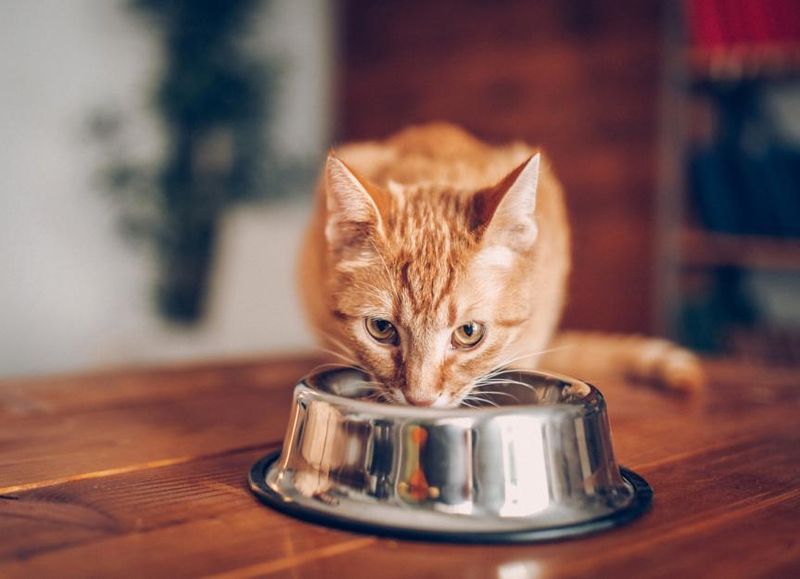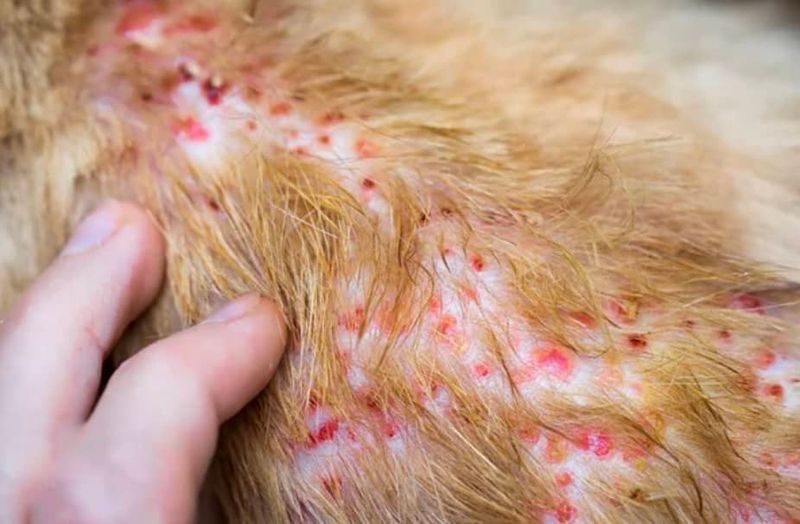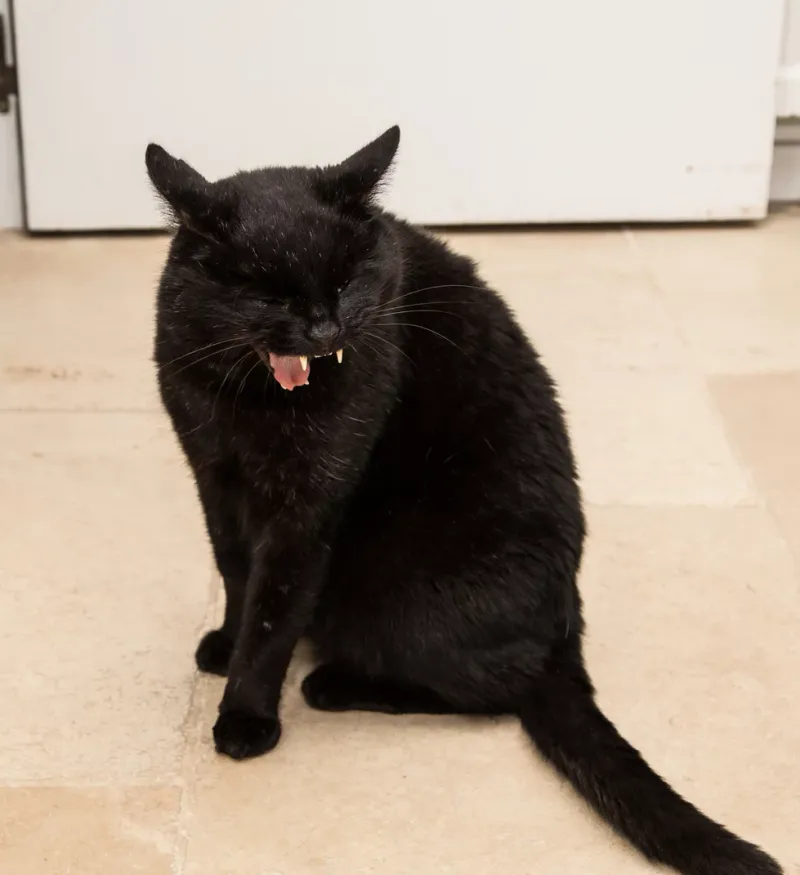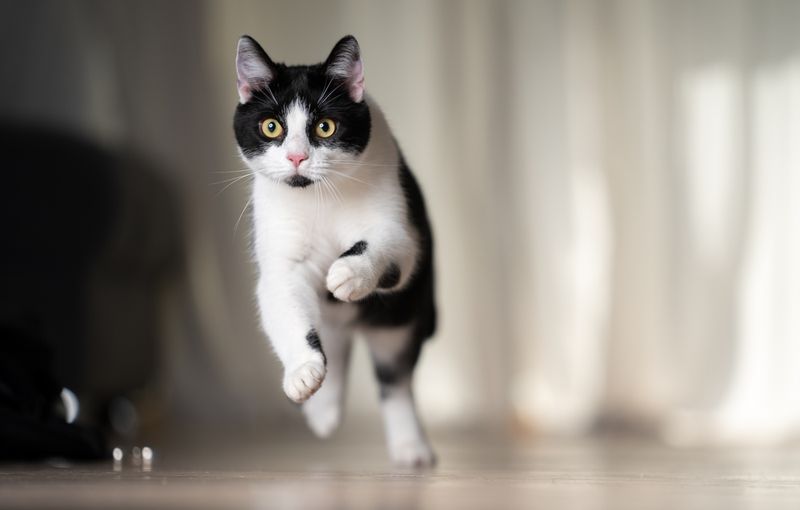📖 Table of Content:
Cats, much like humans, can suffer from food allergies. These allergies may manifest in various symptoms that pet owners often overlook. Recognizing these symptoms early can lead to better care and a healthier, happier feline friend. This article explores 15 subtle signs that your cat may be reacting to its diet.
1. Persistent Scratching
Does your cat constantly scratch itself even without visible fleas? This could be an indication of a food allergy. Persistent scratching, especially around the neck and head, often signals that your feline friend is having an adverse reaction to something in their diet.
Observing your cat’s behavior can be crucial. Scratching leads to open wounds, making your pet susceptible to infections. Identifying the allergen and eliminating it from their meals will alleviate the discomfort.
Did you know? Cats have a more sensitive skin barrier compared to other animals, making them more prone to itchiness.
2. Vomiting
Vomiting can often be dismissed as a common cat behavior, but frequent occurrences might indicate an allergy. Cats with food allergies tend to vomit shortly after their meals, as their bodies react to the offending ingredient.
Monitoring the frequency and timing of your cat’s vomiting is essential to identifying this issue. A change in diet, under a vet’s guidance, could resolve this uncomfortable symptom.
Fun fact: Cats have a unique digestive system that evolved to process proteins rather than carbohydrates, making some foods harder for them to digest.
3. Diarrhea
Diarrhea is another overlooked symptom that may point towards a food allergy in cats. When a cat’s gastrointestinal tract is irritated, it can result in loose stools, which can be both uncomfortable and dehydrating for your pet.
If your cat experiences diarrhea frequently after meals, it’s worth considering a dietary assessment. Eliminating potential allergens could make a big difference.
Quick tip: Ensure your cat stays hydrated if they’re experiencing diarrhea, as this condition can lead to rapid fluid loss.
4. Excessive Licking
Cats are known for their grooming habits, but when it becomes excessive, it might indicate a food allergy. Over-grooming leads to bald patches and sometimes skin infections.
Pay attention to your cat’s grooming patterns. If they focus on specific areas, it might be a response to irritation from food. Consulting a vet to identify triggers can save your cat from further discomfort.
Cats often over-groom in an attempt to soothe itchy skin, a common reaction to food allergies.
5. Ear Infections
Recurrent ear infections in cats can often be traced back to their diet. If your cat frequently shakes its head or scratches at its ears, a food allergy might be the culprit.
Inspecting your cat’s ears for redness, discharge, or a foul odor can provide clues. Dietary changes often lead to improvement in ear health.
Did you know that cats’ ears are incredibly sensitive, picking up on the slightest changes, making them more prone to irritation from allergies?
6. Swollen Face
A swollen face is an alarming but sometimes overlooked symptom of a food allergy in cats. Swelling can affect the eyes, lips, or entire face, causing discomfort and concern.
This reaction might occur soon after eating and requires immediate attention. Identifying and removing the allergen can quickly alleviate symptoms.
Cats also experience facial swelling due to environmental allergies, but food-related cases are notable for their rapid onset post-meal.
7. Poor Coat Condition
A shiny, soft coat is often a sign of a healthy cat. Conversely, a dull, dry coat may suggest food allergies. Nutritional deficiencies or allergens can rob your cat’s coat of its luster.
Regular grooming and a balanced diet can help restore your cat’s coat condition. Investigate dietary changes if you notice a decline in their fur’s quality.
Fun fact: A cat’s fur reflects its overall health, making it a great indicator for underlying issues like allergies.
8. Loss of Appetite
A sudden disinterest in food can be a red flag for food allergies. Cats who associate discomfort with eating may avoid meals.
Understanding your cat’s eating habits can help identify if a particular food is causing the issue. Offering alternative options might rekindle their appetite.
Did you know? Cats have highly refined taste receptors and are naturally fussy, so changes in their eating behavior should not be ignored.
9. Sneezing
Frequent sneezing isn’t always due to respiratory infections. Sometimes, it’s a response to allergens, including food. If your cat sneezes often, it’s worth investigating their diet.
Keeping track of sneezing episodes and consulting with a vet can help pinpoint the cause. A dietary change might be necessary to alleviate the sneezing.
Interesting tidbit: Cats have a keen sense of smell, and irritants from allergic reactions can often lead to sneezing fits.
10. Behavioral Changes
Sudden behavioral shifts, such as lethargy or irritability, can point to food allergies. A cat that feels unwell might be less playful or more aggressive.
Monitoring your cat’s mood and energy levels can provide insights into their health. Dietary adjustments may improve their overall mood and vitality.
It’s fascinating how closely tied a cat’s behavior is to its physical well-being, making any changes worth noting.
11. Reddened Skin
Have you noticed any redness or rashes on your cat’s skin? This could be an allergic reaction. Reddened skin often appears on areas with less fur.
If your cat shows signs of skin irritation, examining their diet might reveal the cause. A vet can recommend hypoallergenic foods to test.
Fun fact: Cats have fewer sweat glands than humans, which means skin reactions are more visible due to their thinner skin layers.
12. Coughing
Coughing isn’t just a human symptom. Cats can also cough due to food allergies. This often signals that the allergen may be affecting their respiratory system.
If your cat frequently coughs after eating, it’s time to consider a dietary review. Eliminating the allergen can bring relief.
Did you know? Cats’ coughs can sometimes be mistaken for hairball issues, but persistent coughing deserves a closer look.
13. Weight Loss
Unexplained weight loss is concerning and can be a sign of food allergies. Cats struggling to digest certain foods may lose weight despite a regular diet.
Keeping track of your cat’s weight and consulting a vet if you notice changes can help address this issue. Nutritional adjustments might be necessary.
Interesting fact: Cats have a unique metabolism, and unexplained weight changes often prompt a closer examination of their diet.
14. Bad Breath
Foul-smelling breath can sometimes be linked to dietary issues. If your cat has persistent bad breath, it might be reacting to something in its food.
Bad breath can indicate digestive distress or oral issues stemming from allergic reactions. A dietary consultation might offer a solution.
Did you know? A cat’s diet heavily influences its dental health, making breath odor a key indicator of underlying issues.
15. Hyperactivity
While cats are known for their playful nature, excessive hyperactivity might be tied to food allergies. Certain ingredients can lead to heightened energy levels or agitation.
Watching your cat’s energy spikes and correlating them with meals can provide insights. Consider discussing this with your vet to explore dietary causes.
Fun fact: Cats’ reactions to food can vary widely, with some even displaying unusual bursts of energy from allergens.
